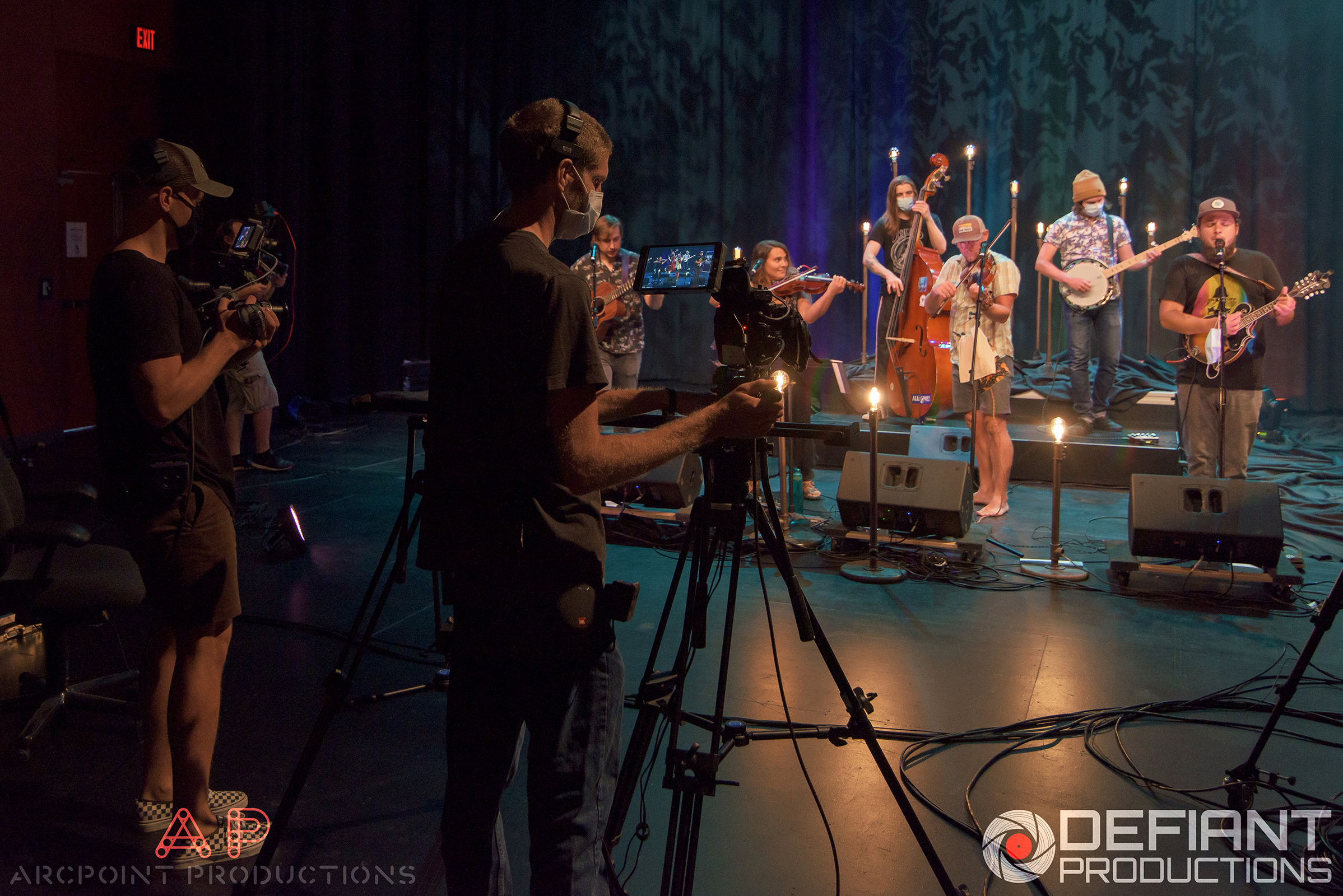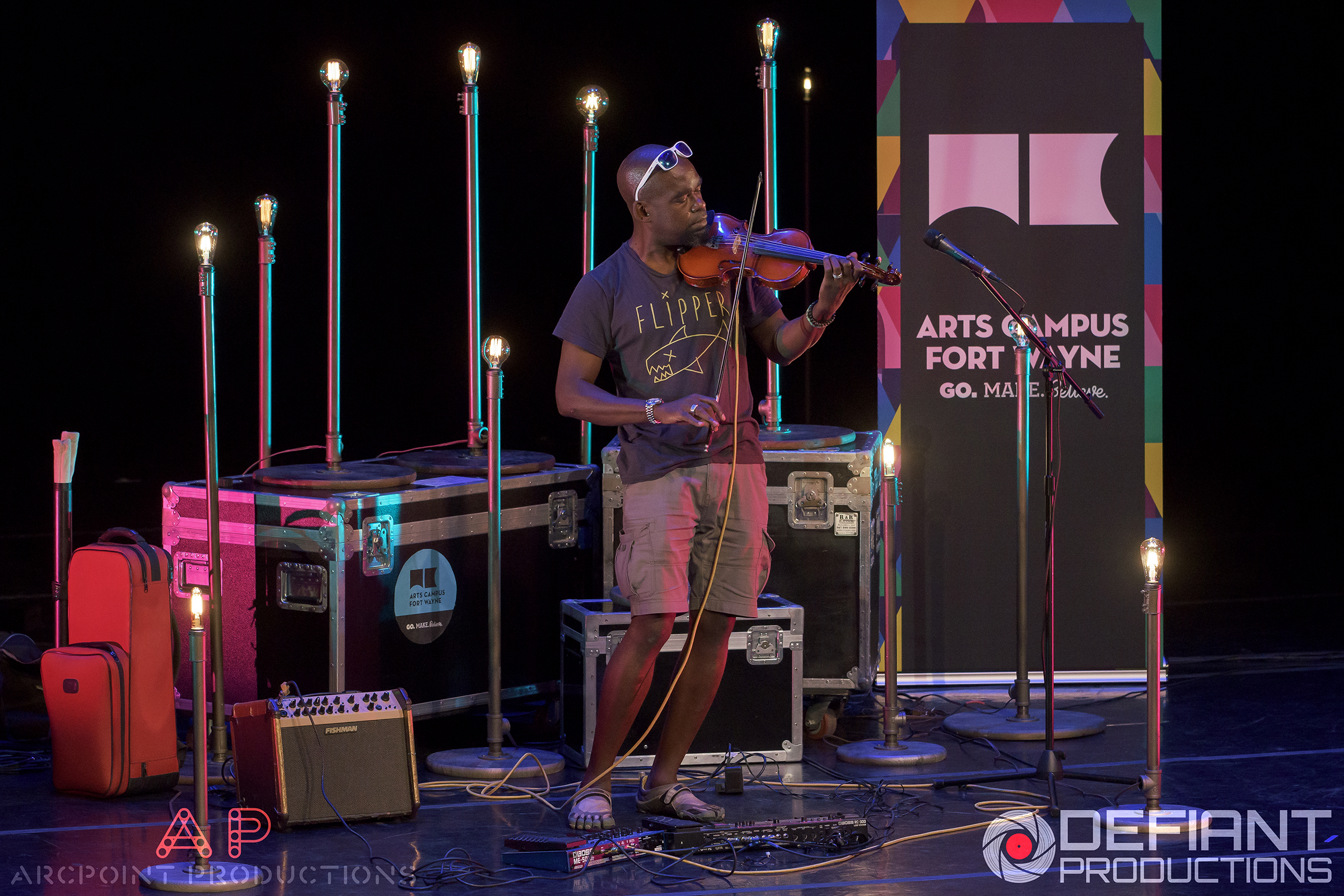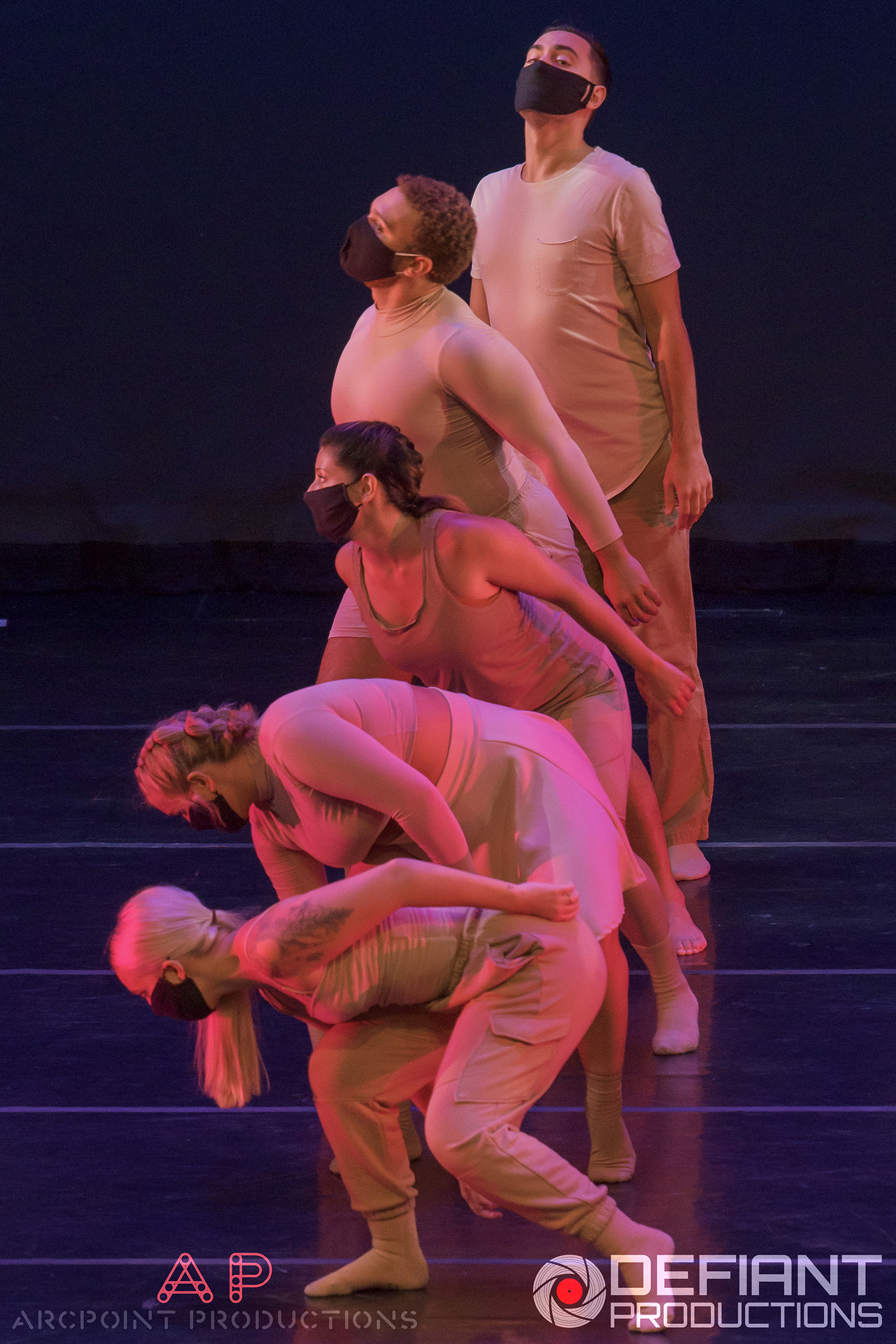Taste of the Arts is an arts festival in Fort Wayne, Indiana that usually serves 30,000+ people over three days on the downtown Arts Campus. Following the novel coronavirus pandemic, Taste of the Arts pivoted its usual in-person event to be held virtually. In this interview with Arts United's Communications and Community Relations Manager, Rachelle (pronounced Rachel) Reinking, we highlight both the strategic and logistical decisions that were made with the intent to inform and inspire other arts organizations and artists in the state of Indiana to continue to be flexible and find innovative ways to operate in this new normal.
 Arcpoint Productions recording the band Debutants
Arcpoint Productions recording the band Debutants
Tell us about Taste of the Arts in its traditional format. What is the purpose of the festival, and what kind of programming is present?
Taste of the Arts Festival celebrates and supports the rich diversity of arts and cultural experiences in our vibrant community of Northeast Indiana. The festival is open to all, providing access to art without cost. The multifaceted event traditionally provides ten stages of more than 80 performances of music, theatre, dance, comedy, and spoken word; interactive S.T.E.A.M. activities for kids provided by regional arts and culture organizations; an art marketplace of regional makers of handmade crafts and goods; buskers and fringe artists performing throughout the festival; and Arts Campus Fort Wayne partner activities such as free admission to The History Center, Artlink, and Fort Wayne Museum of Art; local farmers market; and Fort Wayne Artists Guild’s Plein Air painting event. Also, local restaurants sell tastes of their culinary specialties, donating a portion of their sales to support the festival.
There truly is an arts experience for everyone, regardless of age, background, or personal preferences.
Tell us about Taste of the Arts in its new format. What kind of programming are you presenting, and how are you doing it?
This year, we’re including many of the traditional programming of the festival, but we’ve transitioned how patrons access them. Ferguson Advertising led the development of creating the new format of the festival that kept it accessible and user-friendly with a website redesign. On this new festival website, patrons explored the virtual map of Arts Campus Fort Wayne and selected from multiple online activities that mirror our onsite events.
In coordination with our presenting partner Arcpoint Productions and Arts United operations staff, we created three online stages by filming and producing more than 30 acts of local performances during the months of July and August. The production values of the recordings are extremely high – literally cinematic quality video. Under the online format, patrons can also donate to performers via a virtual tip jar linked to donation pages, Venmo, and PayPal.
NIPSCO STEAM Park shifted into an online hub of S.T.E.A.M. activities families can participate in at home. Our partner arts and culture organizations have been producing content for remote activities since March 2020, and this part of the festival has turned into a centralized location for many of those. Additionally, some are providing live content throughout the day that patrons can follow along with.
Artlink’s Art Market was an online marketplace in 2020, featuring links to the selected artists’ online stores and Etsy shops.
Rather than ask our restaurant partners to support the festival this year, instead we are simply encouraging festival goers to visit our Restaurant Row and order carry out from their favorite restaurants.
Faces of the Fort, in partnership with Frosty Pictures and the Fort Wayne Public Art Commission, highlights the stories of Hometown Heroes who have positively impacted Fort Wayne’s civil rights and social justice movements in an online storytelling stage.
Other partners are offering onsite, socially distanced activities in coordination with the festival, including the galleries, museums, farmers market, and Fort Wayne Artists Guild’s Plein Air Event.

Indiana violinist Derek Reeves
What were the factors that the Steering Committee considered when deciding to change the format of the festival following the coronavirus pandemic?
Early on, the Steering Committee knew that we could not safely host 30,000 people at Arts Campus Fort Wayne. While the majority of the traditional festival is outside, some activities are indoors, challenging our ability to social distance. Our stages committee also needed the time to properly sanitize equipment between each performance, which impacts scheduling.
We closely monitored Governor Holcomb’s guidelines as the festival date neared, so that we could be prepared to adapt the festival as advised. As online experiences became a social norm during quarantine, arts and culture became more accessible. We brainstormed ways that Taste of the Arts could leverage this. Accessibility is a primary goal of the festival, and converting Taste of the Arts to an online format increased our ability to reach people who may not be able to participate in the traditional format. The Steering Committee believes that it will continue to still host online experiences even when the festival returns onsite to Arts Campus Fort Wayne.
Tell us about the logistics of creating this new festival. How did your expenses change? What new technology did you have to embrace?
The expenses for the festival decreased significantly. We no longer were renting tents, stages, generators, barriers, and other logistical needs to supply the infrastructure for the festival. Arts United underwent a website redesign to build a platform for the festival, and the Steering Committee navigated new territory with video streaming for the stages. Third-party streaming services and the hardware to make streams possible was a learning curve, even for our technical staff. Our Operations staff assisted in filming the performances in a five-camera video shoot with Arcpoint Productions, who generated a cinematic version of the performances for streaming. The decision to produce the videos rather than actually live stream from our stages was made to eliminate down time that would be necessary to load in and out between acts.
Our partnership with Matt Kuntz, owner of Arcpoint Productions, began five years ago. The Taste of the Arts Festival had grown so rapidly that we needed support from a production company to continue to present the quality and quantity of performances we felt needed to be shared with the community. Matt, originally under a different company name, provided the equipment and staffing to make that year a success. Each year the relationship and contribution grew. Arcpoint became the production company that managed all the outdoor stages for the live event by providing both the equipment and high quality technicians to operate the event. This year when we decided we were not going to host a live festival, Matt offered to partner with Arts United in producing incredibly high quality recordings of local performers and arts organizations. Matt dedicated his company to ensure that our community would still have this festival as a celebration of the rich diversity of arts and culture that is available in Fort Wayne. This year, through this partnership, we were able to reach out to an unlimited audience and provide free access to anyone. The partnership between Arts United and Arcpoint has allowed us to continue to break down barriers and increase access to anyone that wants to be a part of the festival.
In addition, our marketing budget shifted towards digital from print. Our main objective was to drive traffic to the new website instead of a physical place. It’s easier to make that conversion happen when the patrons are already online when they see the call to action. Social media, digital ads, and Facebook advertising played a larger role in attracting patrons to the festival. While we use those types of marketing in other years, we expanded the extent to which we use them and furthered education in Facebook Creator Studio and Ads Manager.

Fort Wayne Dance Collective performance
Taste of the Arts has several sponsorships of the festival. Did you have to pivot the sponsorships in any way? What was Arts United’s experience with its sponsors as you explained these changes?
Our sponsors understand that safety is a priority for our patrons and our community, and each have expressed support for moving the festival to the digital format. For the online event, we elected to keep naming rights to the traditional “map points” – Performance stages, Restaurant Row, Info Desk, and STEAM Park – on the festival landing page. A handful of sponsorships were pivoted to those categories, or to technical support for the digital format of the event.
Arts United has developed long-standing relationships with local business leaders that sponsor events like Taste of the Arts. We work hard to make sure they are engaged in our mission throughout the year, not just during the festival. This year, when we determined that we could not host a live, in-person festival, we asked our sponsors if they would support a new format. They enthusiastically agreed. A few business leaders shared that they were pulling back on sponsoring other live events out of a concern for the health and safety of the community.
Why do you think it’s important that Taste of the Arts carry on in this new format, rather than cancelling?
Taste of the Arts provides access to art without cost and celebrates the rich diversity of arts and cultural experiences in Northeast Indiana.
The gig and event industry has been seriously challenged in 2020. Venues and theatres across the country are dark, and the organizations and individuals that animate them need the community’s support more than ever. The values of Arts United are in line with the new format of the festival–to continue advocating for the creative sector. Taste of the Arts provides the vehicle to build the connection between community members and arts and culture organizations.
By moving the festival online, the performances, art market shopping, and other activities are now accessible to individuals who have difficulty managing the challenges experiencing the event onsite. We hope to carry the accessibility of online activities into the future when the festival returns to Arts Campus Fort Wayne.
Published 8/31/2020
